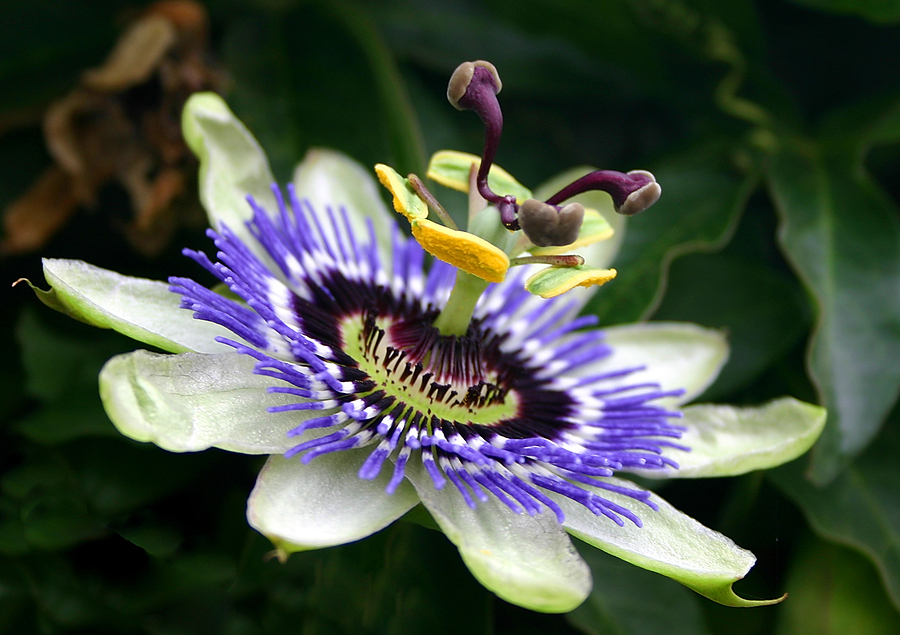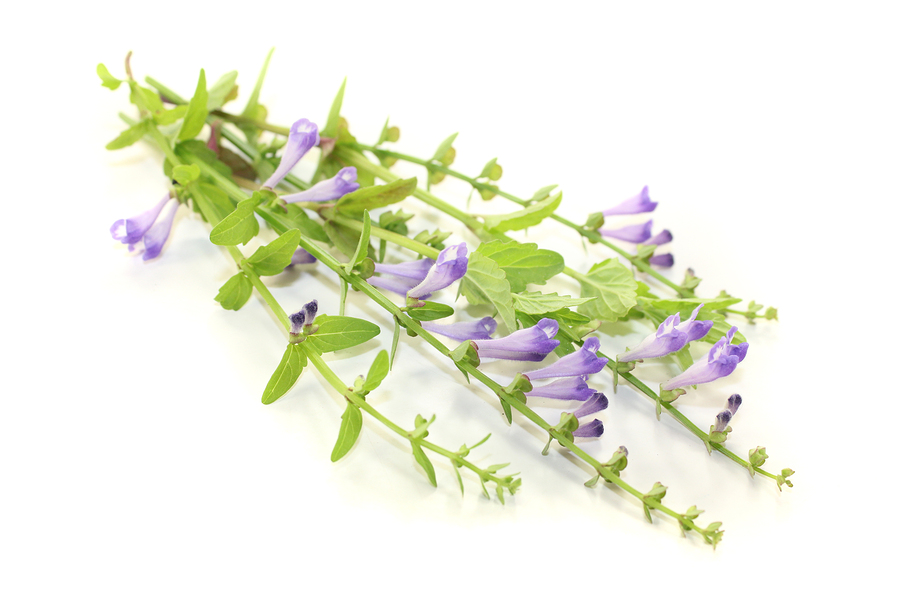- Make It Yourself Lavender Heart-Shaped Bath Bombs!
- 20 Things You Never Knew About “Down There”
- 12 Best Foods For Those Suffering From Arthritis Pain
- 12 Personal Hygiene Mistakes Almost Everyone Makes (Mom Never Told You About #4!)
- 15 Medicinal Plants And Herbs From The Cherokee People
- 12 Mind-Blowing Benefits Of Drinking Coconut Water During Pregnancy
- 12 Outstanding Winter Foods That Won’t Fatten You Up Like A Christmas Turkey
12 Herbs For Relaxation, Stress Relief, And Common Sleep Disorders

Photo credit: bigstock.com
We all know how we feel after a night spent tossing and turning. We drag ourselves through the next day, feeling ill tempered and like your head is full of cotton. All we can think about doing is going back to bed and trying to get a few hours of sleep.
Sleep is essential to our health and well-being, but so many Americans fail to get the sleep they need. The reasons for this vary, but for most people, stress is one of the main factors. Feelings of anxiety and racing thoughts, as well as an inability to relax, are all common problems keeping people awake far longer than they should. Our modern lifestyle, filled with electronic devices, is another problem. How many times do you take your cell phone or tablet to bed, looking at videos or surfing Facebook until you fall asleep?
Sleep problems can indirectly or directly affect our brain and central nervous system, immune system, metabolic function, and even our cardiovascular system.
If you would like to be able to relax and fall asleep naturally, but find that you have difficulty doing so, we have a list of 12 of the best herbs to help you relax, so you can fall asleep and stay asleep.
Sounds delightful, doesn’t it? Keep reading so you can pick the herb that will work best for you. Make a date with the sandman, friends, because you are taking a trip to Dreamland.
1. Lavender
Although there are no scientific studies showing that lavender is a treatment for insomnia, there are plenty of studies showing that, when used in aromatherapy, lavender is a terrific way to relieve stress and anxiety. You can also try using lavender in a tea form and breathe in the steam to help relieve feelings of stress and relax the body naturally. Put a few drops of lavender essential oil on a cotton ball, then place the cotton between your pillow and pillowcase for some sweet dreams later on.
Continue to Page 2

Photo credit: bigstock.com
2. California Poppy
California poppy is a mild sedative that can help to relax you just enough so that you can fall asleep more easily. If you find that this herb is not strong enough, add some valerian or lavender to your tea to help you fall asleep faster than counting sheep.
3. Valerian
The root from valerian plants have long been used as a sedative and in anti-anxiety treatments. This is a common ingredient in many over-the-counter products that are designed to be sleep aides. Valerian improves the quality of sleep while helping you to fall asleep more quickly. This is most commonly consumed as a tea, but it is also available in supplement form. If you choose a supplement, start with the smallest possible dose.
4. Chamomile
This is perhaps the most common herbal sleep aid in the world. This herb has been used for thousands of years as it reduces feelings of anxiety and induces sleep. Even the FDA considers chamomile to be safe with no side effects. This is commonly sold in a tea form. Drink one cup of chamomile tea 30 to 45 minutes before your bedtime.
Continue to Page 3

Photo credit: bigstock.com
5. Passionflower
If you suffer from only occasional insomnia, passionflower might be what you are looking for. This is a traditional sedative and has been used to treat insomnia and anxiety for years. Drink a cup of this tea about one hour before bedtime. Passionflower should not be used for more than two or three weeks at a time.
6. Kava Kava
Kava Kava isn’t as popular as some other herbs on this list, but it has long been used to relive feelings of stress, anxiety, and related nervous disorders. This is generally sold in a powder form that you mix with water. Some studies have shown a link to liver problems with continued use of this herb, so speak with your doctor to see if this herb would be right for you before using.
7. Lemon Balm
Lemon balm is a very mild sedative that has super calming effects on both the body and mind. Lemon balm has been used since at least the Middle Ages to promote sleep. This herb is so mild that it can even be given to children. This herb is consumed as a tea and is often sold in combination with other herbs, such as chamomile or valerian, to increase its effectiveness.
8. Oats
You might think that oats are only for breakfast, but they actually contain melatonin, which is a natural hormone in the body that regulates our sleep/wake cycle. Oats are also a great source of complex carbs which get more tryptophan into the brain, helping you to stay asleep. Although we typically serve oatmeal at breakfast, perhaps we should start making it a nighttime snack to help induce sleep.
Continue to Page 4

Photo credit: bigstock.com
9. Skullcap
This herb with the funny name has been used for ages to relax the body. It has mild sedative effects the work on the central nervous system. Skullcap is often recommended to relive anxiety, improve the quality and duration of sleep, and relax the body. Skullcap is usually sold in combination with other relaxing teas such as chamomile or valerian.
10. Wild Lettuce
Not really lettuce the way you are thinking of it , this herb comes from the seeds and sap of a wild, leafy plant called lactuca virosa, which looks something like lettuce. This herb has a mild, sedative effect on the body and can encourage sleepiness. Combined with other relaxing herbs, such as valerian, this herb works remarkably well. Wild lettuce is often sold in teas or as tablets.
11. Hops
Yes, the same kind of hops that makes beer also works well as a mild sedative. Hops improve the symptoms of mild depression, feelings of anxiety, and the sleep disturbances that often come with these issues. Hops release a chemical that has a calming, soothing effect on the body. Make a sachet with hops and lavender and put this sachet inside your pillow. The lavender will relax the body while the hops make you fall asleep.
12. St. John’s Wort
This is another herb known to fight the symptoms of depression and the insomnia that sometimes follows. St. John’s Wort balances out sleep cycles, making falling asleep easier. This herb is sold in a tincture, tablet, or tea form, but you might have to consume it regularly for several weeks before the full effect is felt. This herb is also known to interfere with other medications, so if you are currently taking any prescription meds, you should speak with your doctor or pharmacist before consuming this herb.
READ ALSO: 12 Natural Ways To Deal With Sleep Disorders (Counting Sheep Isn’t One Of Them!)
Don’t suffer with insomnia or feelings of stress. Try one of these herbs tonight so you can get your rest and feel like a million bucks tomorrow.
References:
































